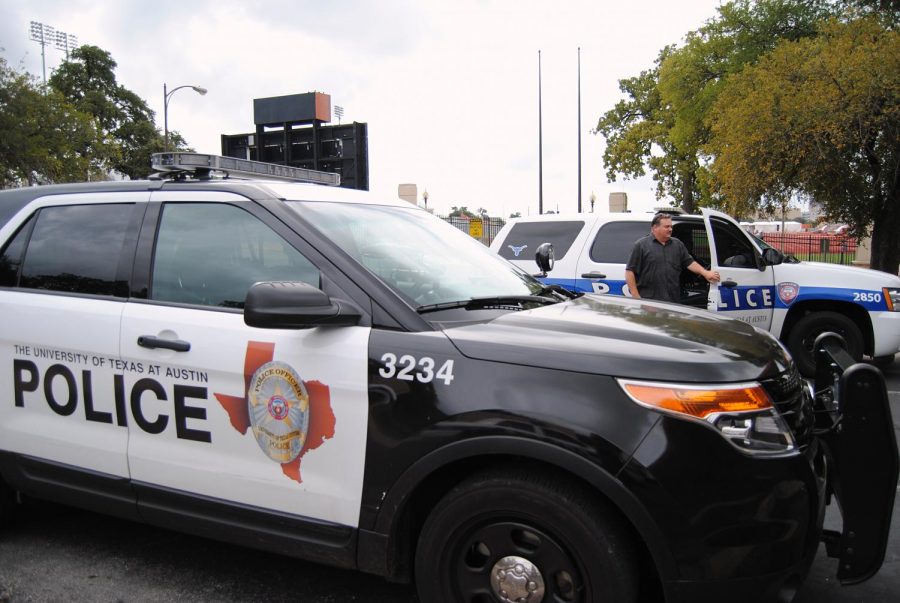UTPD hosts training to educate officers on gender-diverse identities
April 20, 2021
The University of Texas Police Department held a transgender awareness training early this month to educate officers on recognizing gender identities and on the history of hate crimes towards gender-diverse groups, but experts think more needs to be done.
Sgt. David Chambers, the LGBTQIA+ representative for UTPD and part of the Queer and Trans Services Alliance within the Gender and Sexuality Center, led the training. Chambers said he recognizes that many people in marginalized communities are afraid to turn to police for help, but he hopes this training can be a step in the right direction.
“(LGBTQ+ interactions) is an area where there is a struggle within policing,” Chambers said.
The two-hour-long training educated officers on terminology within the LGBTQ+ community, discussed federal and state hate crime and speech laws and UT System policies related to discrimination, and taught officers how to interact with transgender individuals and write reports based on their names.
Teachers taught officers to use the person’s correct name even if their state ID name differs.
“There are opportunities for institutions like The University of Texas to go beyond sensitivity training,” said Erica Ciszek, an assistant advertising professor who specializes in LGBTQ+ advocacy. “Sensitivity training is a more minimal thing an institution can do whereby sensitivity can be one drop in the bucket in a larger curriculum of cultural competency that is needed for rethinking policing.”
Chambers said each officer is required to complete this training once. When new officers receive the training, current officers are encouraged to attend but not required.
Ciszek said in order to address the distrust between transgender individuals and the police, the training must go beyond sensitivity training to address why that distrust exists. They said training must include the history of tension between gender-diverse people and police.
The University has 3 out of 5 stars in the LGBTQ+ Campus Safety section of the Campus Pride Index, according to the UT Gender and Sexuality Center. This index indicates an institution’s commitment to LGBTQ+-inclusive policy and practice.
Ciszek said that while this training is an improvement, they hope to see efforts continue.
“We are at a particularly eye-opening and revelatory moment in our history,” Ciszek said. “It’s really important for us as a campus and as a culture to think about the ways in which policing has been implicated in systems of power around certain identities.”
Angela Hale, a communications strategist for Equality Texas, an advocacy group that fights for LGBTQ+ rights through political action, education, community organizing and collaboration, said Equality Texas believes these trainings are an important step to increasing trust in police, but more protections should be provided to LGBQT+ communities.
In 2001, Texas passed the James Byrd, Jr. Hate Crimes Act, which imposes harsher penalties for crimes targeted at people based on race, religion, sexual preference, disability, age or national origin. The act does not include hate crimes directed based on gender identity.
Groups like Equality Texas are working to gain these protections, according to their website.
“We all must work together to educate, to stop (hate crimes) and to protect our trans community,” Hale said.



